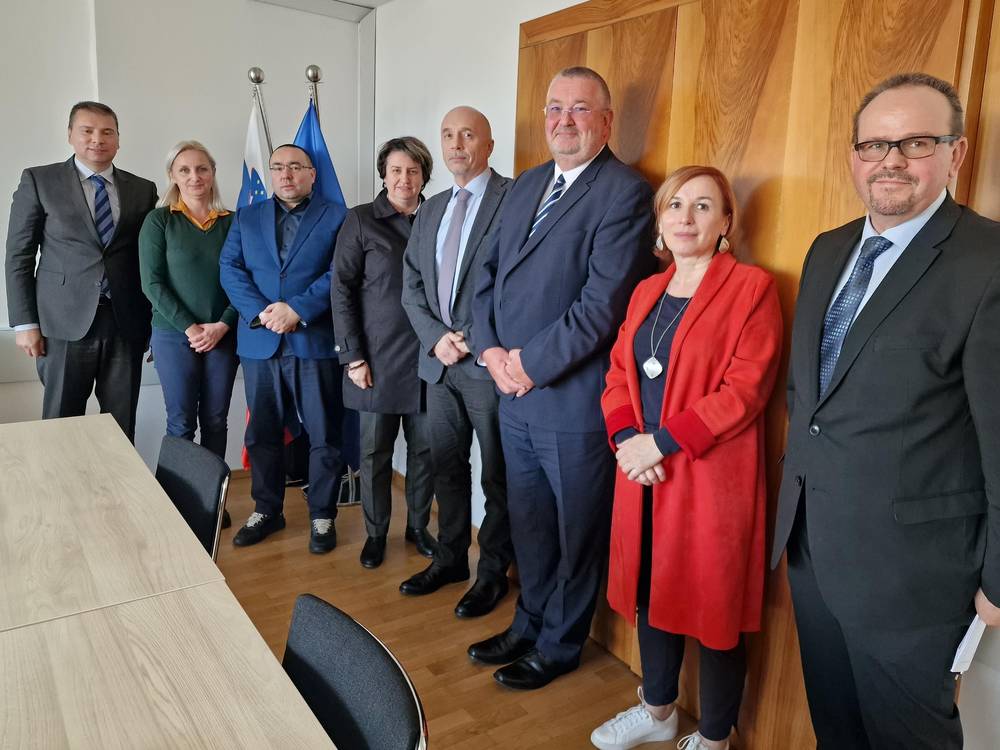Deputy Ombudsman Ivan Šelih hosted yesterday, on 8 November 2022, a working visit by a Croatian delegation headed by Saša Rajić, the deputy of the Ombudswoman of the Republic of Croatia Tena Šimonović Einwalter. They discussed the experience, knowledge and good practices related to mechanisms of supervision of police work. They also visited Ljubljana Detention Centre at Ljubljana Moste Police Station and the Centre for Foreigners in Postojna.
In addition to the Government and the National Assembly, judicial authorities, non-governmental organisations and others, the Institution of the Human Rights Ombudsman also contributes to the independent assessment of the police work. "The police is certainly one of the most supervised institutions in Slovenia. Broad powers could lead to temptation in certain situations, so constant supervision of their work is extremely important. Possible arbitrariness, which can lead to violations of human rights and fundamental freedoms, must be prevented in advance, and supervision also enables better implementation of police procedures," noted Deputy Human Rights Ombudsman Ivan Šelih.
The meeting with the guests from Croatia also took a closer look at the Slovenian Police Tasks and Powers Act and discussed the types of coercive means, paying special attention to electroshock weapons. They also talked about cases of treatment of refugees and discussed the supervision of police work during protests.
"When it comes to the exercise of powers that directly encroach on traditional and fundamental human rights, it is important that an individual has the opportunity to have their case heard by means of a complaint. The Ombudsman thus encourages people who contact it to use the complaint procedure against the work of police officers in accordance with the Police Tasks And Powers Act. It is correct that the affected person should first contact the appeal body in the system in which the alleged irregularity took place. We initiate the procedure in individual cases mainly in cases where this appeal option does not meet the complainant's expectations," explained the Deputy Ombudsman.
The common thread of the Ombudsman's recommendations is that efforts for introducing a systematically more powerful and coherent system for resolving complaints that refer to the work of state authorities with repressive powers should be enforced, including by involving expert members of the public. The Human Rights Ombudsman is happy that the Ministry of the Interior and the police actively respond to our recommendations, as our findings from complaints can be an excellent guide for improving the police work and identifying, i.e. eliminating the causes of complaints.

![[Translate to English:] Delegacija hrvaške ombudsmanke z namestnikom varuha in svetovalcem](/fileadmin/_processed_/8/f/csm_20221108_113012_7533d11715.jpg)
![[Translate to English:] Pogovori o delu policije in nadzornih mehanizmih nad njo](/fileadmin/_processed_/3/4/csm_20221108_111957_7316504293.jpg)
![[Translate to English:] Pogovori o delu policije in nadzornih mehanizmih nad njo](/fileadmin/_processed_/3/a/csm_20221108_112120_32cda844bb.jpg)